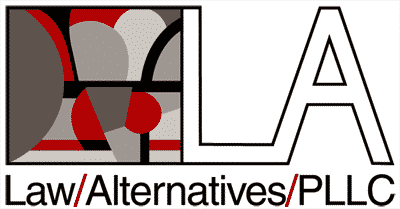What Is Elder Law?
The term “elder law” encompasses many areas of law. Some specific legal issues commonly faced by older individuals and their families include:
Estate Planning (i.e. execution of Wills and/or Trusts) for management during life and after death
Trust Administration and Probate
Powers of Attorney
Elder Abuse and Fraud
Living Wills and Powers of Attorney for Healthcare
Guardianship and Conservatorship
Planning for Incapacity and Long-Term Care
Health Care and Mental Health
Nursing Homes
Medicaid
Medicare
Social Security
Veterans Benefits
Elder Mediation Services
Summary
Some of the areas identified above fall into the financial realm, while others are related to an older individual’s health and general well-being. Addressing the myriad issues related to aging may often seem overwhelming. As attorneys experienced in elder law, we can assist the older individual and his or her family members in planning for these issues and also navigating them as they arise. By planning ahead, issues can be dealt with before they become crises. The issues we address are often very personal and require more than just legal experience. They require sensitivity, respect, and trust. We not only know how to address legal issues related to aging, we understand how to work collaboratively with older adults and their families including the use of mediation to preserve the family relationship.
What about housing?
Housing and its associated cost is probably the most critical topic of discussion among older individuals and their families. Today, there are a variety of living arrangements available for older individuals. Options include “aging in place” (i.e. remaining in one’s own home with or without some assistance), independent living and senior communities, assisted living facilities, skilled nursing facilities (also referred to as nursing homes). However, at some point an older individual may need to transition to a different living arrangement because of personal, medical, and/or financial reasons. Ideally, the transition will occur when the older individual is in good health and capable of making decisions. Unfortunately, this is often not the case and the transition occurs when an emergency or crisis has arisen and, therefore, action has to be taken quickly and with little or no advance planning. As experienced elder law attorneys, we can help guide older individuals and their families through the challenges related to long-term care.
What is long-term care?
“Long-term care” describes the help needed by individuals who have problems living independently because of chronic medical problems or disabilities. Most long-term care is provided by family members and friends until the older individual’s needs become too significant for them to handle. When that point is reached, the older individual and/or his or her family must consider other options for care.
How do I pay for long-term care?
Generally, unless an individual qualifies for Medicaid or has long-term care insurance, most of the costs associated with long-term care will have to be paid out of pocket until the individual’s resources have been expended.
Many people believe incorrectly that Medicare will pay for their long-term care. However, Medicare covers only a limited amount of skilled nursing care. Medicare Part A covers a maximum of 100 days of skilled nursing facility (SNF) care following a hospital stay of at least three days. In addition, there is a large co-payment after the first twenty days. Medicare Part B covers certain in-home services when they are provided by a Medicare-certified home health agency for a person who is homebound and needs some skilled care. Medicare does not cover other nursing facility care, other in-home care, or care provided in an adult foster care home, residential care facility, or assisted living facility.
In contrast, Medicaid does pay for long-term care, but only for very low-income individuals with little to no income or assets. To qualify for Medicaid assistance, an individual (or married couple) must pass an income test and an asset test. In general, these tests are applied for skilled nursing facility services as well as for home or community-based Medicaid services.
Proper planning is critical in order to maximize your options.
How do we help our clients plan?
Before the initial consultation, we ask a potential client to complete our Elder Law Planning Worksheet below and to gather important documents such as Wills, Powers of Attorney, Long-Term Care Insurance policies, housing contracts, and other important documents related to the older individual’s situation.
